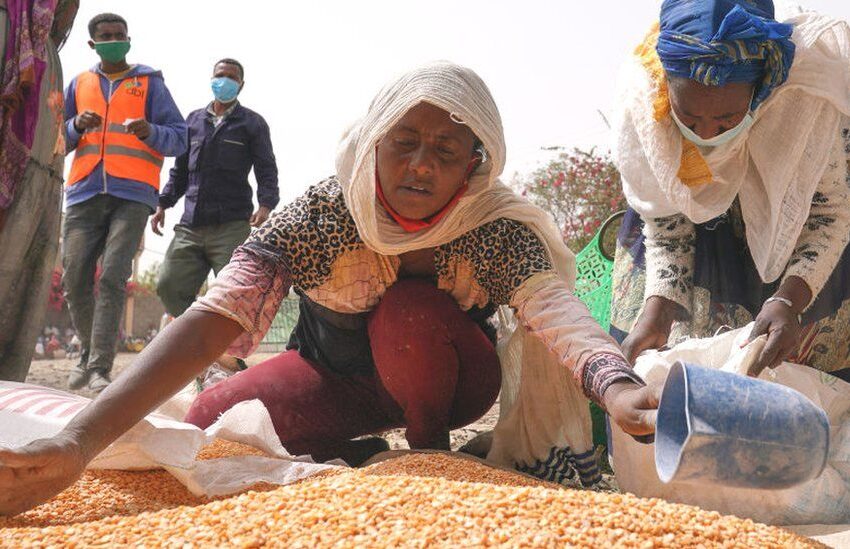
Doctors among those begging for food in Tigray
Source: BBC
January 28, 2022
Some of the nurses and doctors at the biggest hospital in Ethiopia’s war-torn Tigray region are having to beg for food to feed themselves, one of the medics has told the BBC.
They have not been paid for eight months, forcing them to find other ways of supporting their families, he said.
The doctor’s account comes as the UN reports that “severe hunger” was hitting ever more people in Tigray.
It says that 2.2 million people “are suffering an extreme lack of food”.
Half of all pregnant and breastfeeding women are suffering from malnutrition, the UN’s World Food Programme (WFP) survey found.
Overall, in Tigray and the other two regions affected by the months of fighting, Amhara and Afar, nine million people need some form of food assistance, the WFP adds.
Ethiopian federal government forces have been battling rebels from the northern Tigray region since November 2020 in a conflict that has killed thousands of people.
For a lot of that time much of Tigray has been cut off, making it hard to deliver vital aid and medical supplies. Banks have also been shut meaning that people cannot access savings or funds to pay others.
Doctors and nurses have not been spared from the suffering.
Speaking on condition of anonymity, a doctor from Ayder Hospital, in Tigray’s capital, Mekelle, told the BBC that seeing nurses and doctors queuing for food parcels had become normal over the past seven months.
Baby dies from lack of food
They have not been paid since May last year.
“Most have cut the number of meals they can take per day. Food oil, vegetables, grains – the price has soared so high that it is unthinkable to buy. Some have started begging for food,” the doctor said.
He also spoke about how a lack of medical supplies has affected treatment. Instead of sterilised surgical gauze, essential for cleaning wounds during and after surgery, Ayder Hospital has been relying on donations of clothes which are then cut up and sterilised.
The doctor also said that Surafeal Mearig, the three-month-old baby the BBC wrote about earlier this month has since died. He was sent home from hospital as he had been gaining weight but then there was not enough food at home and he died on 13 January.
The BBC is unable to independently verify the details in the account as much of Tigray has been under a communications blackout since the start of the war.
There may be some small relief as this week, the International Committee of the Red Cross did manage to fly medical aid into Mekelle for the first time since last September.
No UN food convoy has reached Tigray since mid-December, but the WFP says 100 lorries a day are needed to prevent starvation.
The UN is asking for $337m (£252m) to fund its operation in northern Ethiopia for the next six months.
The Tigray conflict broke out in 2020 after Prime Minister Abiy Ahmed ordered a military offensive against regional forces in the area. He said he did so in response to an attack on a military base housing government troops there.
The escalation came after months of feuding between Mr Abiy’s government and leaders of the Tigray People’s Liberation Front (TPLF), the ruling party in Tigray.
In recent months, the federal army has beaten back a rebel advance but fighting has continued close to the border between the Tigray and Afar regions.
There has been some hope that peace talks could be in the offing.
The newly appointed US special envoy for the Horn of Africa, David Satterfield, recently travelled to Addis Ababa while the African Unions mediator, former Nigerian President Olusegun Obasanjo, has also met senior Tigrayan leaders.
